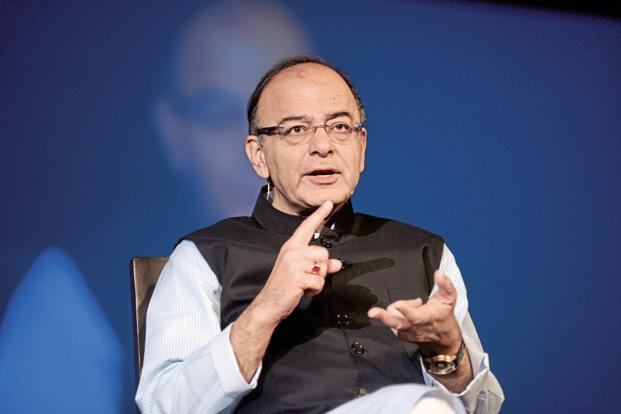The GST Council template for cooperative federalism
Live mint
By Anil Padmanabhan
Mon, Mar 20 2017. 04 07 AM IST
That a fundamental reordering of federal fiscal relations has been achieved with a minimum of bickering, despite hurdles like demonetisation, is a tribute to the GST Council

Finance minister Arun Jaitley. Photo: Abhijit Bhatlekar/Mint
Last Thursday, the goods and services tax (GST) Council signed off on the final two pieces of supporting legislation, setting the stage for their introduction in Parliament and state legislatures. With this, the country is now just a few steps away from rolling out this landmark piece of tax reform.
The buzz in government is that the trial runs on GST will commence either from 1 May or a few weeks later. All of a sudden, the deadline of 1 July for this piece of indirect tax reform—which for the first time will economically unify the country—seems eminently doable.
While meeting the deadline is indeed laudable, it is also important to acknowledge the stewardship role of the GST Council in enabling this. It is not just the fact that the scale and scope of GST is staggering (as an example, the Goods and Services Tax Network will be handling up to 3 billion invoices a month under the new indirect tax regime).
Instead, it is a fundamental reordering of federal fiscal relations of India—while states have had to give up their taxation powers and cope with associated insecurities, the Union government has had to sacrifice its own share and its purview of revenues—that GST entails.
And the fact that this has been achieved with a minimum of bickering—though there were moments, like when the note ban was announced, when it looked as though talks would break down and the GST rollout would go off rails—is a tribute to the Council.
Indeed, seen this way, the Council, made up of state finance ministers and with the Union finance minister as the chairperson, has served up a superb template for cooperative federalism—also the signature claim of Prime Minister Narendra Modi. There will be disagreements, sometimes very fundamental, yet convergence for the cause of the larger global good is very much possible.
Especially since realising the future potential of India will require states to be key (if not equal) stakeholders in policy decisions, the traditional top-down approach with the Union government at the helm will no longer work. Given the deep political divide—given fundamentally differing political ideologies—between the Union government and some of the state governments, convergence of views is tough.
And the way the council is structured, things can’t go forward without a consensus or at least a majority of the votes carrying the resolution. This is because the states together account for two-thirds of the votes and the centre holds only a third; given this structure, a consensus would be the preferred option instead of demanding a vote.
Exactly why the progress made by the GST Council through consensus is so impressive. Keep in mind that the GST has been on the agenda of the Union government from the turn of the new millennium. Politics—including by the BJP, which was in the opposition then—delayed India’s tryst with this most important piece of tax reform in modern India.
Even within the Council, the going was never easy. Often, political differences between the Union government and states (read West Bengal and Kerala) spilled over into the Council’s deliberations. It delayed, at some stages even threatened, but never led to a cessation of negotiations.
As insiders point out, this was not possible without a compromise on the part of both states and the Union government. And in this, they single out the leadership of Union finance minister Arun Jaitley for special mention. Not only did his network of contacts on both sides of the aisle in Parliament come in handy, so did his diplomatic handling of tricky face-offs (like calling for a coffee break to defuse a heated confrontation and engaging the agitated member in some kind of bilateral negotiations on the sidelines).
It is then clear that the GST Council has shown the light on cooperative federalism. This intangible gain is as important as the fact that India is on the threshold of rolling out a monumental piece of reform.
Anil Padmanabhan is executive editor of Mint and writes every week on the intersection of politics and economics. His Twitter handle is @capitalcalculus.